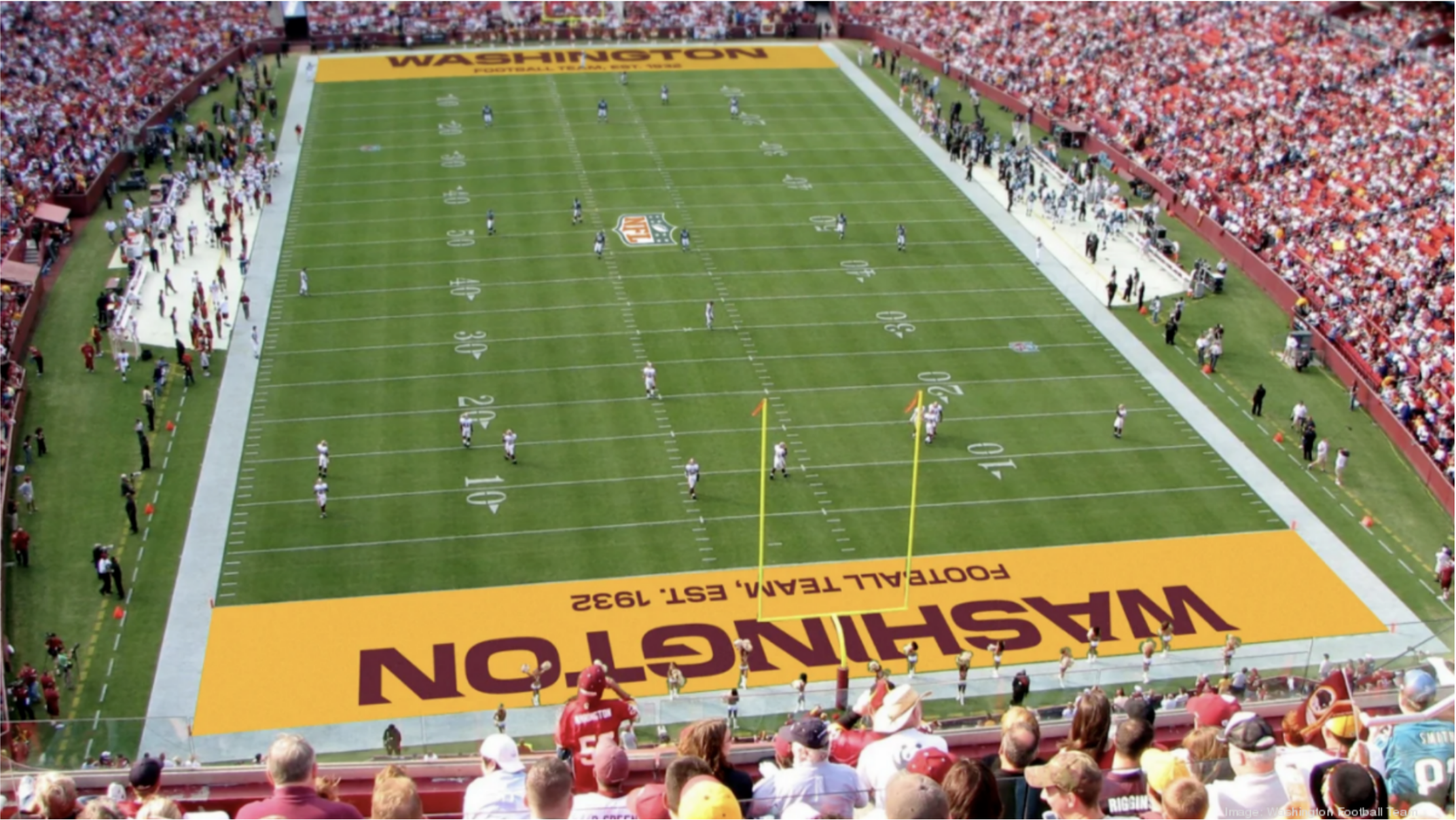
WASHINGTON FOOTBALL TEAM
Words have not only core meanings, but resonances of the kind that may not make it into the dictionary but are deeply felt by all of us.
John McWhorter
Washington Football Team
The Washington football team was asked repeatedly to change its name. Before 1992’s Super Bowl XXVI, 2,000 fans sat outside the Metrodome in protest of Washington. Contentious discussion continued for twenty years. When asked, team owner Snyder went so far as to say "NEVER." In 2020, with issues of systemic racism and injustice highlighted by Black Lives Matter and other protests, change is finally happening.
Supporters long argued that it was tradition, but controversy over the name was not new. “The fight for the removal of the name—and the franchise's owners ignoring that fight—spans decades, since then-owner George Preston Marshall's 1933 rebrand of the team from the Boston Braves to the Boston Redskins. In 1968, the National Congress of American Indians began fighting to remove negative stereotypes of their culture in the United States, including sports. Four years later, 11 activists asked Washington team officials to change the name—team officials said the team intended to "convey not disrespect but reverence" with the moniker.
Critics argue that the name change was financially motivated rather than addressing a past insensitivity, and the Washington Football Team finally gave in when sufficient pressure was applied to their profit margin.
The issue became even more complicated when the family of Walter Wetzel, the Native American who created the R*dskins logo, expressed their mixed feelings about its retirement.
In order to better understand the seriousness of “What’s in a Name?” the history, meaning, and complications of that name must be examined. The Washington Post, as a nationally respected news source, also serves as the Washington Football Team’s local paper. The battle over the team’s name has offered the paper many storylines throughout the years. Their writers, namely Ian Shapira, examined the name back to the 18th century to determine exactly where it came from, its complicated connotations, and the controversy surrounding the use of “redskins.” The timeline below provides a compilation of their work.
[1] John McWhorter, “Why 'Redskins' Is a Bad Word,” Time, October 12, 2015, https://time.com/4070537/redskins-linguistics/.
[2] Brady Langmann, “The Decades-Long History of the Washington Redskins Ignoring Reasonable Calls to Change Their Mascot: The team will now finally abandon its nickname, because none of these calls for change had to do with advertising.,” Esquire, July 14, 2020, https://www.esquire.com/sports/a33296382/washington-redskins-name-change-protest-history/
[3] Ian Shapira, “A Brief History of the Word ‘Redskin’ and How it Became a Source of Controversy,” The Washington Post, July 3, 2020, https://www.washingtonpost.com/history/2020/07/03/redskins-name-change/.
[4] Nate Scott, “50 Senators Sign Letter Urging Redskins to Change Team Name,” USA Today, May 22, 2014, https://ftw.usatoday.com/2014/05/senators-washington-redskins-team-name-letter.
[5] NBC Sports, “New Poll Finds 90 Percent Native Americans Not Offended by Redskins Name,” May 19, 2016, https://www.nbcsports.com/washington/washington-redskins/new-poll-finds-90-percent-native-americans-not-offended-redskins-name.
[6] Les Carpenter, “Washington’s NFL Team to Retire Redskins Name, Following Sponsor Pressure and Calls for Change,” The Washington Post, July 13, 2020, https://www.washingtonpost.com/sports/2020/07/13/redskins-change-name-announcement/.
